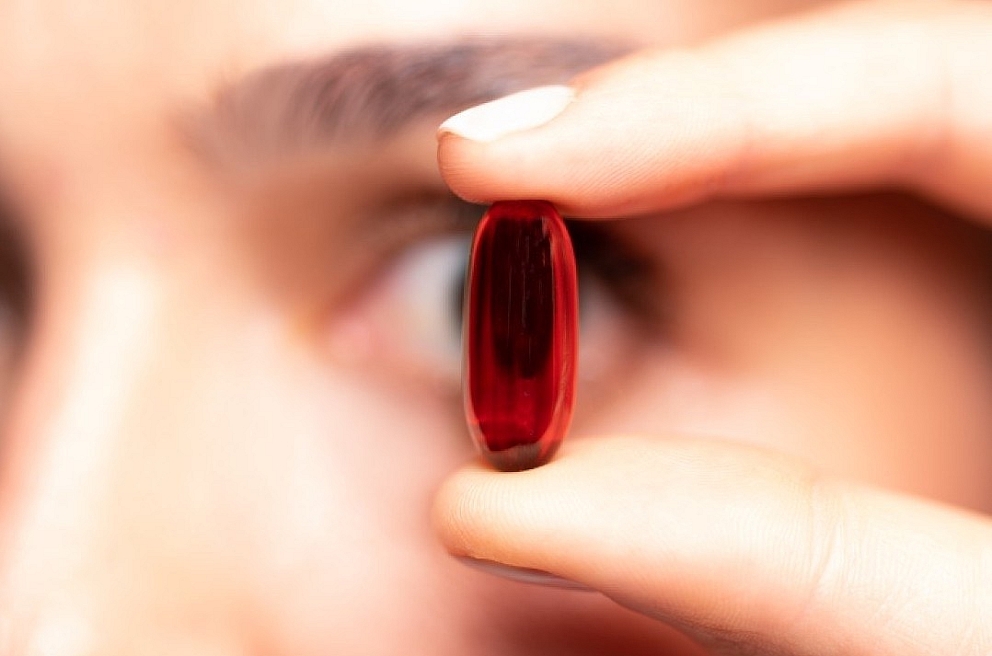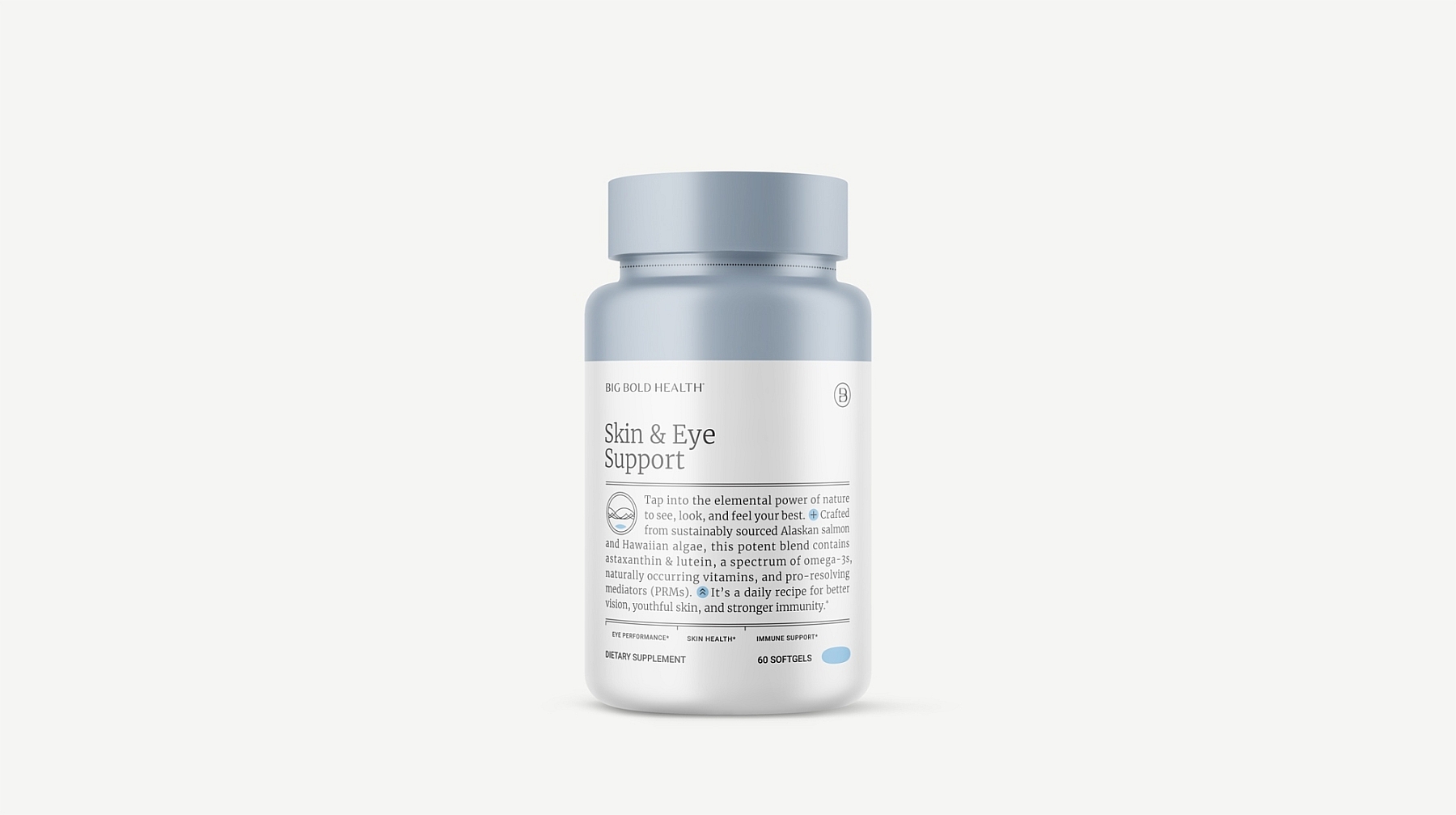The best nutrients for eye health

Highlights
• Many people today struggle with eye health issues like dry eyes and tired vision
• One way to think about the link between eye health and lifestyle is through food choices
• Certain foods and nutrients have been studied for their potential role in eye wellness
• Lesser known strategies to promote better eye health may include hydration and getting enough zinc in our diet
Why should you care about your eye health?
Eyesight is one of the most important senses we have. Those who are sighted rely on vision not only for the pleasure of seeing beautiful sunsets or works of art, but also to discern danger, help perform many tasks, and make sense of the world around us.
Issues that affect our ability to see or focus can have a huge impact on our quality of life, and in many cases may reduce our ability to carry out basic functions.
Many people who are spending more and more time in front of a computer, especially over the past couple years, can attest that their vision seems worse. Those who have eye problems in their family may be seeking ways to support healthy vision while they have it. One way to look at this may relate to what’s on our dinner plate.
What does diet have to do with eye health?
Like most organs in the body, eyes may be affected by the foods we consume. The blood that flows through our arteries and veins, influenced by diet, supplies our eyes with the nutrients that help them to function well.
So, what we eat, or don’t eat, matters to the overall health of these optic globes. Research indicates that those who consume more fruits and vegetables tend to have better eye wellness. Additionally, numerous issues related to the health of the eyes could be influenced by dietary nutrients including those that support a healthy gut microbiome.
Which specific nutrients are linked to the eyes?
As with most issues involving our health, it’s the overall eating pattern that may matter most. Focusing on just one nutrient (bring in the carrot!) is not going to solve the problem if the rest of the diet is of poor quality. That being said, below are some of the key nutrients to consider including as you work to take excellent care of those peepers.
Omega-3 fats
Evidence has demonstrated that two important types of Omega 3 fatty acids, EPA (eicosapentanoic acid) and DHA (docosahexanoic acid, which is found in the retina), may help vision and eye dryness. These are found in oily fish like sardines, anchovies, and salmon, as well as in walnuts, chia, hemp and flax seeds, although some research indicates that the amount in plant-based foods may be less due to conversion issues.
Fish oil supplements or, for those who follow plant-based eating, algae oil or flaxseed oil supplements, may also be an option. An added benefit of these beneficial fats are their positive effects on skin health.
Seeking creative ideas? Walnuts and hemp seeds make a great addition to breakfast “grain bowls.” Flaxseed oil can be part of a salad dressing. And anchovies give salad or pasta dishes a lovely extra salty kick.
Carotenoids
These protective plant chemicals found in bright orange and dark leafy green vegetables have been touted for their ability to support healthy eyesight, not only because they exert antioxidant effects but because, specifically, the compound beta carotene gets converted to Vitamin A which is key for supporting vision.
Two stars of the carotenoid family, lutein and zeaxanthin, have been shown in the research to have the greatest impact. Found in dark leafy greens, like kale and collards, but also in egg yolks (depending on the diet of the hen), these powerful phytonutrients not only help with visual fatigue but may also help absorb blue light.
The red pigment, asthaxanthin, is another member of the carotenoid family, found in crustaceans like shrimp and lobster as well as micro-algae, which has demonstrated potential to support healthy vision.
So, make a sweet potato and shrimp stew, sauté a bunch of collards, or roast up some carrots for a spectrum of carotenoid input. Including a fat source is beneficial as well since it improves absorption. Supplements can also be a way to access these helpful compounds.
Vitamins C, E, and D
The eyes are well-served by the presence of antioxidants in the diet, so ample amounts of vitamins C and E are important to include in meals. The fluid that surrounds the eyes has high concentrations of vitamin C, which is directly influenced by the food sources we consume, such as kiwi and citrus fruits, but also green peppers and broccoli.
Fat soluble vitamin E plays a key role in helping to protect essential fatty acids (mentioned above) from oxidation, so including foods like nuts, seeds and avocado can help to boost levels in the body.
Research has also highlighted the value of optimal vitamin D status in eye health. Food sources of vitamin D are limited but include oily fish, mushrooms, and eggs. Many find that a supplement is necessary for achieving optimal levels. In the meantime, whipping up a frittata or a favorite egg dish with avocado, red peppers, and mushrooms may help with giving a vitamin-rich boost.
Zinc
It may be surprising for some to hear that the eyes also contain high levels of zinc which not only acts as a cofactor for numerous enzymes involved in eye metabolism but also offers both anti-oxidant and immune protective effects.
Studies have shown that many individuals are not meeting the recommended amount of zinc in the diet, whether due to fewer dietary sources (vegetarians may need higher amounts) or impaired absorption issues stemming from reduced stomach acid associated with aging or medications. Animal-based products are a good source, with oysters topping the charts, and many seeds and grains (especially when soaked) can offer moderate amounts as well. For some, a supplement may be beneficial particularly if needs are higher. Side note: This magic mineral is also a critical component of skin health and immunity.
Hydration
Don't forget to hydrate! Our eyes are surrounded by protective fluid which, when we blink, helps to clear out the detritus that accumulates throughout the day. The consistent intake of liquids can directly affect the fluid balance in our eyes. Whether it’s water, herbal teas, or another favorite elixir, a sufficient intake of daily beverages can aid in keeping eyeballs lubricated and healthy.
The takeaway
When working to address general eye fatigue, ensuring optimal intake of the above nutrients may be a pathway to helping those weary eyeballs continue to function and see well into the future.




